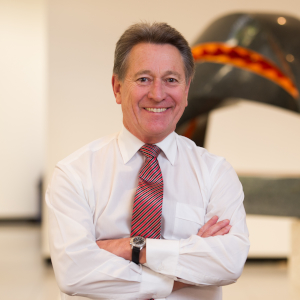Powered by MOMENTUM MEDIA
Clients of legal services are more demanding. Where once they accepted lawyers who understood the law, today they want much more, writes Neville Carter.

Clients expect legal advisors to be trusted business partners who understand the commercial drivers of their businesses. They want lawyers who can negotiate, collaborate, manage relationships and solve problems. Lawyers often call these qualities ‘soft’ skills, but they are the tools clients use in the hard business world they operate in.
As the largest provider of practical legal education in Australia, the College of Law accepts its responsibility for preparing lawyers for a profession where the business skills of negotiation and collaboration will be as important as the legal skills of drafting and interpretation.
The question is how to teach these new skills and transform the way lawyers work and the relationships they have with clients?
To find an answer, the college turned to US-based educators Fullbridge, an organisation that teaches what it calls the ‘science of working smarter’.
The college asked Fullbridge to design a new educational program for Australian lawyers. Called The Legal Edge Learning Lab, the pilot course took place in Sydney recently with 13 lawyers and law academics put through their paces in an intensive 26-hour, data-driven learn-by-doing program over two weeks.
So how does it work?
The course uses innovative learning technologies and an interactive design involving ‘smart-learning’ scenarios to give newly minted lawyers and seasoned professionals new skills.
The modules range from teaching listening techniques, communication and empathic strategies through to building rapport, all the way to showing how to evaluate a business’ health through its profit and loss statement.
Fullbridge’s CEO Roger Berry describes the process as holding a mirror up to the student to show them their own strengths, weaknesses and perspectives in a way that helps them reach that next level. The objective is to get people, irrespective of how radical or how conservative they might be, to improve their performance.
This is not role playing – its called active learning. Attendees are not being asked to be someone else, but to be themselves. They are then given a set of business interests to represent structured around the students underlying competencies.
As far as negotiation goes, the course shows people how to draw out from someone - as an underpinning competency for negotiation - a sense of where a deal might be found, a sense of interest, a sense of leverage and a sense of how to achieve win-win situations.
According to the participants, their Fullbridge experience was a positive one. As one student said: “You walk away having developed negotiation, rapport-building, teamwork and financial literacy skills through online learning, productive group discussions, coaching, engaging practical exercises and unique real-time feedback technologies.”
Another described the course as a unique and transformative experience in which she learnt “elements of inquiry, emotional intelligence, problem solving and design thinking”.
The Fullbridge pilot shows there are proven methodologies for teaching commercial and soft skills to legal professionals. It represents the next stage in the practical education of lawyers and equips them for a career in today’s legal profession
That’s what it’s about. The contemporary legal workplace is a complex place. It’s got humans in it.

Neville Carter is the Group CEO of the College of Law. He leads a team of 400 educators and is at the forefront of innovation in legal education.